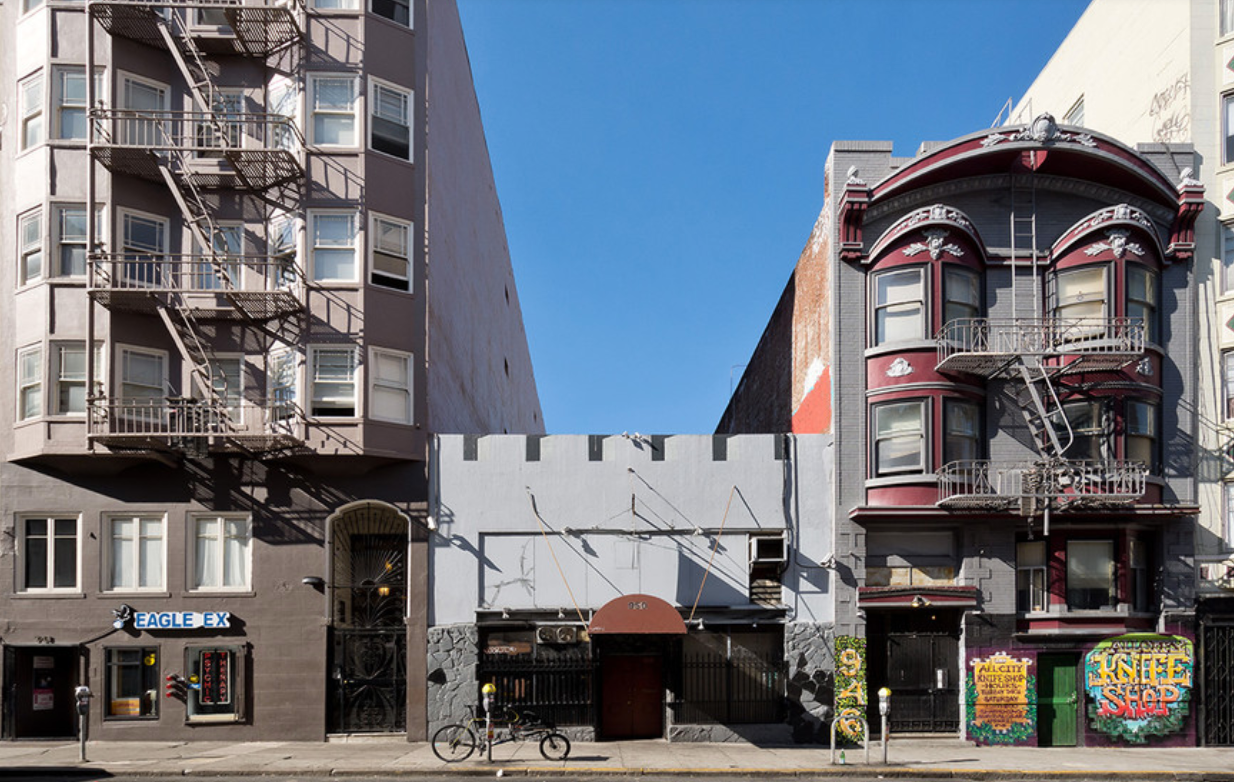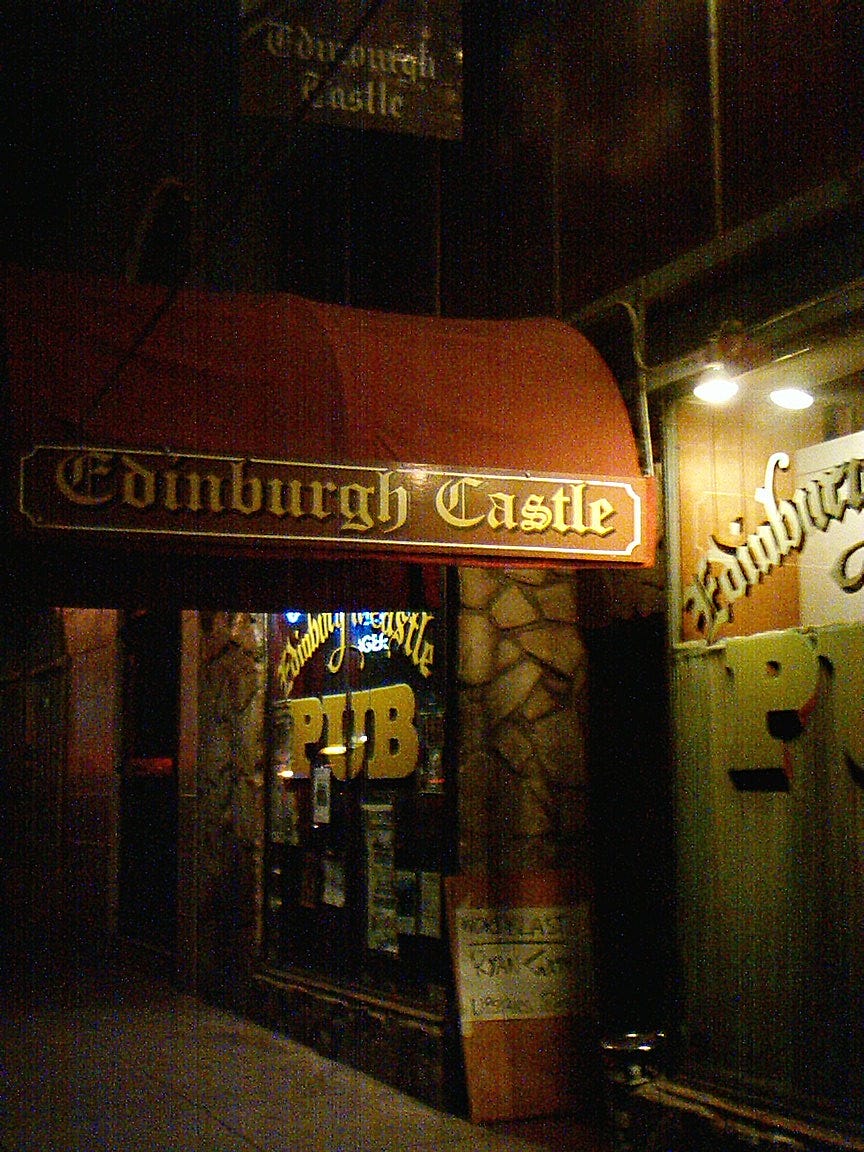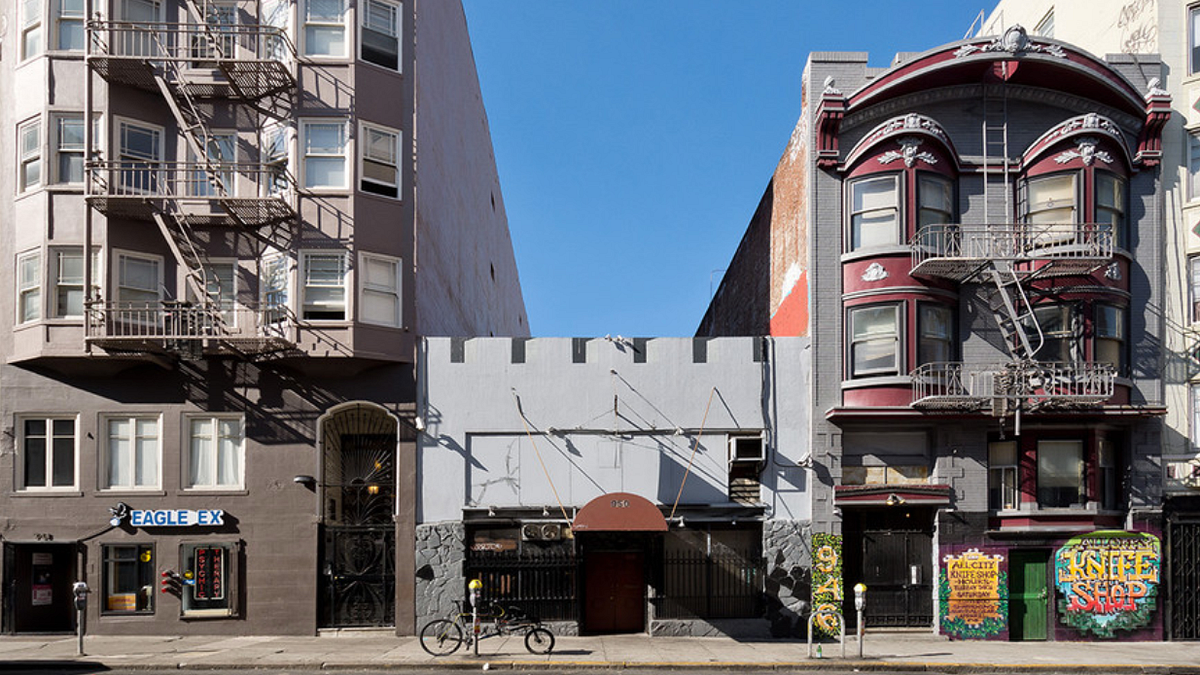My Favorite Corner of SF

I recently moved from San Francisco to West Oakland, and there aren’t many things that I miss about the city. At the same time, lockdown has me feeling nostalgic about the time I spent there in my early twenties — a time that, for obvious reasons, was much more simple and free.
Sign up for The Bold Italic newsletter to get the best of the Bay Area in your inbox every week.
Looking back, two places in San Francisco made it worth living in a 200-square-foot, century-old residential hotel in the Tenderloin: The local Goodwill and Edinburgh Castle Pub, two neighborhood gems firmly nestled on Geary Street between Polk and Hyde. For years, I frequented both. This, by far, is my favorite corner of San Francisco.

Much like eccentric old friends, Edinburgh Castle Pub and Goodwill are places that I now love and appreciate from a distance. I haven’t visited either since lockdown, but I think about them when I crack open a beer alone on a Friday night, or aimlessly scroll through Depop’s explore page. While Edinburgh and Goodwill are considered grimy — and rightfully so — they each made me feel wealthy on both a material and spiritual level.
Even now, my clothes are still secondhand, but thrifting online isn’t the same as the thrill of potentially contracting a weird skin rash (what can I say, I like to live dangerously). On Saturday and Sunday mornings, I’d religiously follow the same routine: I’d scour the racks at Goodwill, picking through lace and floral monstrosities until I’d come across a pair of vintage Frye boots or faux fur coat. Arms full, I’d leave with pyrex pots and pans, marble planters, and mom jeans so tight I thought I’d lose circulation. It didn’t matter if the clothes had a faint, floral scent or fell apart at the seams — later that night, I’d insist on wearing my dubious secondhand scores out to Edinburgh Castle Pub anyway.
I especially miss the pub’s romantic, run-down atmosphere. No matter how much ambient lighting I buy or watered-down pilsners I stock up on, I can’t seem to recreate it. Underneath garish, rotating lights, DJs spun soul records from behind a black booth. The bartender, a stone-faced Scottish writer, poured shots and mixed drinks for neighborhood regulars — many of whom he observed and wrote about in a sardonic Huffington Post column.
Across from him, the dance floor would be empty, save for the one odd couple or group of bewildered Irish tourists. But when the clock struck midnight, droves of skaters, street photographers, and art school dropouts would congregate in the smoking room: a hazy microcosm of cigarette ash, tall cans, and missed connections. Defaced with graffiti from floor to ceiling, the room also had a broken piano that, eventually, someone would get drunk enough to try and play. There was once an aux cord in the corner, but at one point it was either stolen or removed — it’s hard to say which.
I’m also sentimental about Edinburgh because it was where I met with old friends and made new ones. Crammed in a wooden booth, my girlfriends and I would bond over rounds of $5 shot-and-beer specials. When we weren’t complaining about our shitty retail jobs, we were scoping out boys with bad tattoos (okay, maybe that was just me). After getting kicked out at 2 a.m., we’d hug and part ways, or maybe grab a greasy slice of pizza from Mustafios. To-go box in hand, I’d stumble home, pushing past blocky, identical-looking men wearing button-downs and cheap cologne. The next morning, I’d wake up hungover, my hair and clothes smelling like a VICE reporter’s ashtray. As a nonsmoker, it used to drive me insane, but now I almost miss it.
As trite as it sounds, those weekends were special because they represent a bygone era of San Francisco: a time when you could socialize risk-free, and visit a constellation of eclectic local dives — many of which are now shuttered. With Hemlock, High Tide, and Gangway now gone, it’s possible I’ll never step foot in Edinburgh again either. In 2019, it was put up for sale, and lockdown has only made it more difficult for brick-and-mortar businesses to operate.
However, part of growing up is accepting that just as people change, so do cities. It’s hard to determine what the future of Geary Street’s businesses will look like in six months, let alone years from now. Regardless, I will always cherish the experiences that only Goodwill and Edinburgh could have possibly given me. In the corner of my mind, I can still see them: the college-age kids and Tenderloin denizens picking through the racks, and the smoking room’s amber glow, bright like a beacon against the dark cityscape. Perhaps one day, we’ll meet again.







